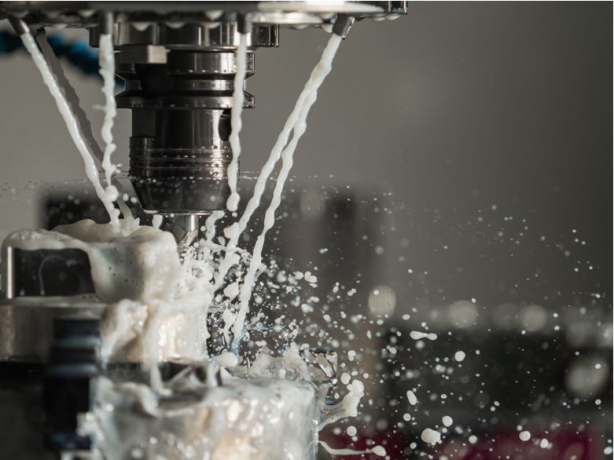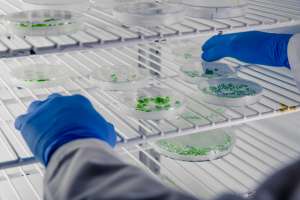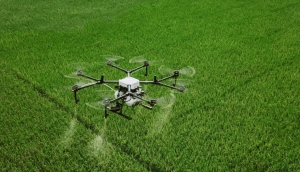Introduction
In today's industrial landscape, sustainable manufacturing has become a pivotal focus as businesses seek to minimize their environmental footprint. The manufacturing sector is responsible for a significant portion of global waste and energy consumption, making it essential to explore and implement more sustainable practices. One innovative approach that stands out in this quest for sustainability is CNC (Computer Numerical Control) machining. Renowned for its precision and efficiency, CNC machining offers a sustainable solution by significantly reducing material waste and energy consumption. This article explores how CNC machining is transforming manufacturing into a greener, more sustainable industry.
Understanding CNC Machining
CNC (Computer Numerical Control) machining is a manufacturing process that uses computerized controls to operate and manipulate machine tools. Unlike traditional manual machining, CNC machining automates the control of machining tools via software, which translates digital designs from CAD (Computer-Aided Design) files into precise physical components. This automation ensures high levels of accuracy, repeatability, and efficiency.
The history of CNC machining dates back to the 1940s and 1950s when early forms of numerical control (NC) machines were developed. These machines used punched tape or punch cards to control machine operations. With the advent of computers in the 1970s, NC machines evolved into CNC machines, integrating direct computer control and more sophisticated programming capabilities.
In modern manufacturing, CNC machining is indispensable due to its ability to produce complex parts with tight tolerances across various industries, including aerospace, automotive, medical, and electronics. Its precision and efficiency make it a cornerstone of advanced manufacturing processes, driving innovation and sustainability.
Environmental Impact of Traditional Manufacturing
Traditional manufacturing methods often involve significant resource consumption and waste generation. These processes typically use large quantities of raw materials, with much of it ending up as scrap due to inefficient material removal and overproduction. This waste not only depletes natural resources but also creates disposal challenges, adding to environmental degradation.
Energy consumption in traditional machining is another major concern. Conventional manufacturing methods rely heavily on fossil fuels to power machinery, leading to substantial carbon emissions. The cumulative carbon footprint from these operations contributes significantly to global climate change and environmental pollution.
Moreover, traditional machining methods face several challenges in terms of sustainability. They often require frequent tool changes and maintenance, leading to downtime and increased energy use. Additionally, the use of coolants and lubricants in these processes can result in hazardous waste, posing risks to both human health and the environment. Addressing these challenges is crucial for moving towards more sustainable manufacturing practices.
CNC Machining: A Sustainable Solution
CNC machining stands out as a sustainable solution in modern manufacturing due to its precision, efficiency, and eco-friendly practices. Utilizing advanced programming and automation, CNC machines achieve precise material removal, significantly reducing waste and resource consumption compared to traditional methods.
Efficient resource utilization is another benefit, as CNC technology maximizes raw material use and extends tool lifespan, lowering production costs. CNC machines are also designed for energy efficiency, with automation and control systems reducing energy consumption and emissions.
Sustainable practices in CNC machining include using eco-friendly materials like recycled metals and biodegradable plastics, and implementing recycling and waste reduction strategies. Closed-loop systems collect and reuse scrap materials, promoting a circular economy. Reducing hazardous substances and ensuring proper disposal prevent environmental contamination.
Energy-efficient CNC machines with advanced controls and sensors optimize energy usage. Renewable energy sources like solar or wind power further reduce the carbon footprint. Companies like Beska Mold, a leading sheet metal fabrication and CNC machining service provider, are at the forefront of these sustainable practices, setting industry standards.
Benefits of Sustainable CNC Machining
Sustainable CNC machining offers numerous environmental advantages. By reducing material waste and energy consumption, it helps conserve natural resources and lower carbon emissions, contributing to a healthier planet.
Additionally, adopting sustainable practices leads to significant cost savings and efficiency improvements. Energy-efficient machines and optimized resource utilization reduce operational costs and increase productivity.
Furthermore, a commitment to sustainability positively impacts brand reputation and customer relations. Consumers and businesses increasingly prefer environmentally responsible companies, and demonstrating eco-friendly practices can enhance a brand's image, build customer loyalty, and attract new clients who value sustainability. Beska Mold's dedication to sustainability serves as a model for other manufacturers aiming to improve their environmental footprint.
Future Trends and Innovations
The future of sustainable CNC machining is marked by emerging technologies and innovative practices. One notable trend is the integration of Artificial Intelligence (AI) and machine learning, which optimize machining processes by predicting tool wear, enhancing precision, and reducing material waste. These technologies enable real-time adjustments, further improving efficiency and sustainability.
Additive manufacturing, or 3D printing, is also gaining traction as a complementary process to CNC machining. It allows for near-net-shape production, minimizing material usage and waste. Additionally, advancements in sustainable tooling materials and coatings extend tool life, reducing the environmental impact of frequent replacements. These innovations collectively pave the way for a more sustainable and efficient manufacturing landscape. Beska Mold continues to invest in these cutting-edge technologies to stay ahead in the industry.
Conclusion
Sustainability in CNC machining is crucial for minimizing environmental impact while maintaining high manufacturing standards. By reducing waste, optimizing resource use, and enhancing energy efficiency, CNC machining plays a significant role in sustainable manufacturing. The industry must continue to embrace eco-friendly practices, leveraging emerging technologies like AI and additive manufacturing to further improve sustainability. Manufacturers are encouraged to prioritize sustainability, not only for regulatory compliance but also for the long-term benefits of cost savings, improved brand reputation, and customer loyalty. Together, we can drive the manufacturing sector toward a greener, more sustainable future.






